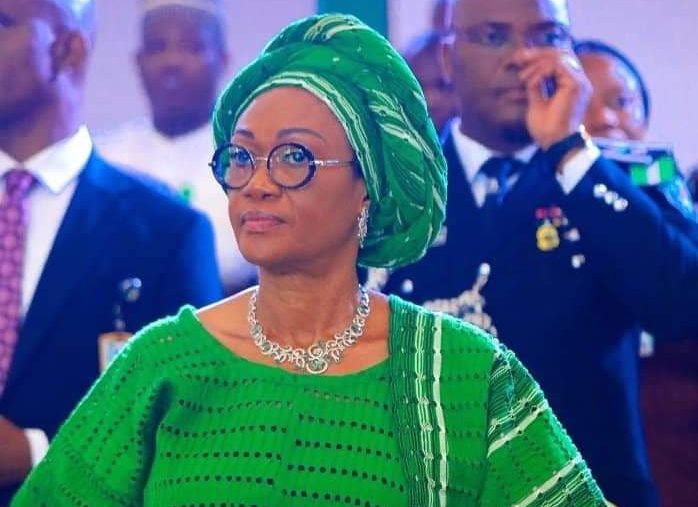The Investment and Securities Bill, which aims to regulate the Nigerian capital market and address issues such as Ponzi schemes, has been passed by the National Assembly and is awaiting presidential assent to become law.
The bill includes provisions for possible jail sentences of not less than 10 years for promoters of Ponzi schemes, which have caused significant financial losses and undermined investor confidence in Nigeria.
The Investment and Securities Service Bill 2023 finally scaled through the final hurdle of the National Assembly when the Senate passed it on March 29. The bill, which is expected to aid the functioning of the capital market and facilitate the ongoing economic diversification in the country, was passed by the House of Representatives in December. It is only awaiting presidential assent to below a law.
At the plenary, the Senate President, Ahmad Lawan, stated that the bill is expected to protect investors, adequately regulate the market, reduce systemic risks as well as provide for more stringent punishment for operators of Ponzi schemes.
Some experts welcome the introduction of the prohibition on Ponzi schemes as long overdue, while others express concerns about the effectiveness of such measures and the potential impact on the investment climate.
The bill also proposes asset forfeiture and fines of 10-20% of the amount collected from victims.
However, there are divergent opinions on the issue, with some arguing that Ponzi schemes have worked in other places and accusing the National Assembly of copying foreign laws without considering their suitability for the Nigerian context.
There are also doubts about whether the bill will be signed into law before the expiration of the President’s tenure.
According to Nigeria’s Securities and Exchange Commission, three million Nigerians lost N18bn when the popular Ponzi scheme, Mavrodi Mundial Movement aka MMM, crashed in 2016. As of 2022, Nigerians have lost over N300bn in Ponzi schemes in five years, according to a report generated by the Norrenberger Financial Investments scheme.
The promoters of a popular investment scheme, Ovaioza Farm Produce Storage Business Limited, are facing prosecution for luring members of the public to an unregistered collective investment scheme. The promoters, Imu Yunusa and Goodness Omeiza have been accused of defrauding their victims up to N2bn.
Reacting to the introduction of the prohibition of Ponzi schemes, Chief Executive Officer of Enterprise Stockbrokers, Mr Rotimi Fakayejo, said that the move was long overdue and a welcome idea.
He said, “I remember very well, this Ponzi scheme that got a lot of people in trouble, MMM. In the end, it is not just about people losing money. It is the disinterestedness in investing. First, they invested in the wrong window and ultimately, they will not invest again.
“Some foolishly and gullibly invested in it and some because of ignorance entered into it and others because of greed. Those who entered into it because of greed know what they were doing, they are just greedy. But the ones who get into it ignorantly, not knowing that such schemes are not authorized by the SEC are the ones who may never enter into any viable or regulated investment window again. Every economy needs investment, for money to be revolving through profitable channels.”
Fakayejo also argued that both those who get involved in Ponzi schemes and their promoters should be punished, albeit, the sanctions would be different.
He said, “The person who goes into it should get a small punishment and the person that starts the scheme should get a huge penalty. For anything, you are supposed to make findings.”
Regarding the proposed jail term of not less than 10 years, Fakayejo stated that the inclusion of asset forfeiture and also a fine of 10-20 percent of the amount of money collected from victims may not be a bad idea.
Expressing a divergent opinion on the Ponzi scheme prohibition, the National Chairman of the Progressives Shareholders Association of Nigeria, Boniface Okezie, stated that Ponzi schemes had been embraced in other places.
“The Ponzi scheme has worked elsewhere; people have embraced it but the Nigerian market has not embraced it and SEC said that it is not known to them and that it is a scam and so they cannot allow Nigerians to patronize it.”
Okezie also accused the National Assembly of copying foreign laws that may have little or no impact on the Nigerian scene and doubted that the President, Major General Muhammadu Buhari (retd) would sign the bill before the expiration of his tenure next month.
The PSAN boss said, “I do not think the outgoing president will assent to that bill before he leaves office on May 29 because previous bills sent to him, it took him time to assent, not to talk of now that he is going for retirement.”
Speaking on some highlights of the bill in a statement released after the Senate passed the bill, the Director-General of the Securities and Exchange Commission, Lamido Yuguda, said that a recommendation was made in the bill for the inclusion of the National Pension Commission on the SEC board for increased collaboration between the two agencies, particularly to encourage greater investment of pension funds and in capital market products/instruments.
This is a welcome development, according to stakeholders, given the visible role that pension funds play in the capital market already.

 BIG STORY5 days ago
BIG STORY5 days ago
 BIG STORY2 days ago
BIG STORY2 days ago
 BIG STORY4 days ago
BIG STORY4 days ago
 BIG STORY2 days ago
BIG STORY2 days ago
 BIG STORY9 hours ago
BIG STORY9 hours ago
 BIG STORY2 days ago
BIG STORY2 days ago
 BIG STORY2 days ago
BIG STORY2 days ago
 BIG STORY2 days ago
BIG STORY2 days ago
























